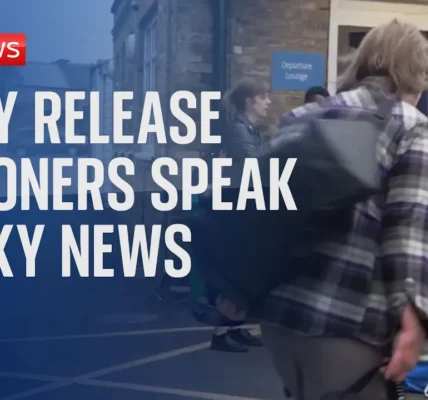Debating National Service: Political Implications and Immigration Concerns in the UK

This article explores the recent proposal by the UK government for a national service, the political motives behind it, its feasibility, and the broader implications for immigration and British values.
Introduction
The proposal for national service by the UK government has sparked intense debate across the nation. Critics argue that the initiative is more of a political maneuver than a practical solution to the issues facing the country today. This article aims to dissect the motivations behind the proposal, analyze its feasibility given the current state of the armed forces, and address the underlying concerns regarding immigration and British values that have emerged as part of this discussion.
The Proposal for National Service
National service, a concept often associated with military conscription, has resurfaced in political discourse as a potential solution to various national issues. However, its practicality is under scrutiny. Here are the main points to consider:
- Political Motivations: The proposal appears to be a strategic move to appeal to certain voter demographics, particularly those aligned with reformist ideals.
- Focus Group Influence: The suggestion reportedly stemmed from discussions within focus groups rather than genuine policy development, raising questions about the sincerity of the proposal.
- Leadership and Authority: Critics argue that Prime Minister Rishi Sunak lacks the leadership qualities necessary to implement such a significant policy.
Feasibility of National Service
Assessing the feasibility of reinstating national service requires a closer look at the current state of the UK’s armed forces:
Declining Military Numbers
The British Army has seen a significant reduction in personnel, shrinking from 100,000 to 75,000 over the past 14 years. This decline raises questions about the capacity to support a national service program.
Public Sentiment and Values
Another critical aspect is the evolving attitudes among the youth regarding national identity and values. A growing number of young individuals express disconnection from traditional British values:
- Surveys indicate a lack of support for national service among younger demographics.
- Some segments of the population actively oppose the values associated with British nationalism.
Immigration and British Values
The national service debate cannot be separated from the discussion surrounding immigration and the perception of British values. This section delves into the intricacies of these issues:
Impact of Immigration Policies
Recent immigration trends indicate a rise in the number of immigrants from diverse backgrounds, which some argue threatens the traditional British way of life:
- The increase in immigration has led to heightened tensions regarding cultural integration.
- Some politicians assert that current immigration policies have inadvertently encouraged divisive elements within society.
Perceptions of Muslim Communities
A controversial aspect of the immigration discourse involves perceptions of Muslim communities in the UK. Recent polls suggest:
- A significant portion of British Muslims reportedly supports organizations viewed as hostile to British interests.
- This perception has intensified debates about national loyalty and integration.
Conclusion
The proposal for national service raises fundamental questions about leadership, the viability of policy implementation, and the intricate relationship between immigration and national values. As discussions continue, it is essential for policymakers to consider the diverse perspectives within the UK and strive for solutions that foster unity rather than division. For those interested in the future of British politics, engaging with these critical issues is paramount. We encourage readers to explore more articles on related topics to deepen their understanding of these pressing matters.
“`




